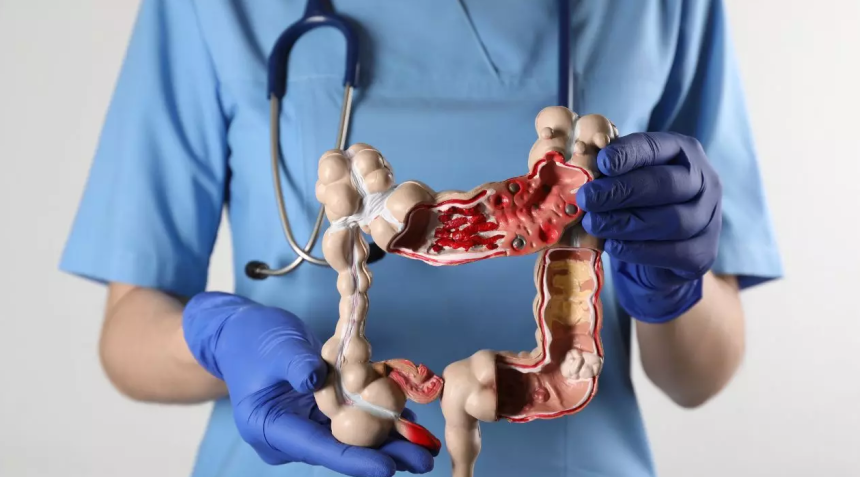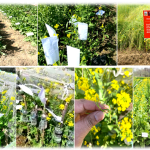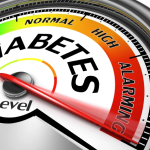RISING CONCERN
Introduction
Colorectal cancer (CRC) remains a major health concern worldwide, ranking as the fifth leading cause of cancer globally and the fourth most common in the United States. Traditionally seen as a disease affecting older adults, this type of cancer is often linked to insufficient screening among average-risk patients. According to a study published in Lancet Oncology, 2022, only 71.6% of individuals aged 50 to 75 had undergone appropriate colorectal cancer screening in 2020. However, many patients under 50, who are not eligible for screening, remain undiagnosed until the disease is active.
Epidemiology
The incidence of colorectal cancer has increased consistently in every age group of adults 20 to 54 years over the last two decades. The incidence rate of CRC in the Kashmir valley is similar to the rest of India, estimated to be around 16.8%. This makes it the second most common cancer in the region after stomach cancer. Gastrointestinal malignancies, including colorectal cancer, constitute more than one-third of all cancer cases in Kashmir. In males, colorectal cancer is the third most common cancer after stomach and lung cancer, while in females it is the second most common after breast cancer. The overall burden and patterns of cancer in Kashmir appear to be distinct from the rest of India and the world, with stomach cancer being the leading site of cancer in older adults, in contrast to the global trends. However, a worrying trend has emerged: a growing number of patients under 50, who are not eligible for routine screening, are being diagnosed with colorectal cancer. These younger individuals often present with advanced stages of the disease, highlighting the need for increased awareness and potentially revised screening guidelines.
Early detection
A systematic review of 55 studies involving 6,425 patients under 40 years old revealed that the most common symptoms of early-onset colorectal cancer include abdominal pain (55%), rectal bleeding (46%), weight loss (35%), and changes in bowel habits (32%) reported by O’Connell and colleagues in the American Journal of Surgery. A large institutional analysis confirmed that younger patients often present with left-sided tumors, abdominal pain, and rectal bleeding compared to their older counterparts. Studies indicate that painless bleeding can precede other symptoms by 2-3 years, and symptomatic patients might wait up to six months before seeking medical help. Delayed diagnosis is often due to reduced awareness of symptoms, low clinical suspicion, and inadequate access to healthcare.
To address these challenges, continuous education and awareness about early-onset colorectal cancer symptoms and screening options are essential. Screening significantly reduces the incidence and mortality of colorectal cancer. In the US, guidelines now recommend starting screening at age 45 for average-risk individuals, using methods such as colonoscopy, flexible sigmoidoscopy, guaiac-based fecal occult blood test, fecal immunochemical test (FIT), or multi-targeted stool DNA test. In Europe, screening is recommended between ages 50 and 74, with the fecal occult blood test as the approved method. The Asia Pacific guidelines also recommend screening between ages 50 and 75, with a focus on stool-based tests, although colonoscopy remains the gold standard globally.
Risk factors
Colorectal cancer risk factors can be inherited, environmental, or both, affecting the disease’s pathogenesis and presentation in hereditary, familial, or sporadic patterns. While hereditary CRC accounts for about 5-10% of cases, it is estimated that 20% of early-onset CRC patients carry at least one pathogenic gene mutation, notably in MSH2 and MLH1. The two most prevalent hereditary CRC types are familial adenomatous polyposis and hereditary non-polyposis colorectal cancer (Lynch syndrome). Lynch syndrome is found in roughly 3% of all CRC cases but is 2-3 times more likely in early-onset cases.
The younger the age of onset, the higher the probability of hereditary CRC. Lynch syndrome-related CRC typically presents at a median age of 45-60 years, younger than the 67 years median in the average-risk population. Other polyposis syndromes, such as those involving MUTYH and SMAD4, occur in 1-2% of patients, alongside other gene mutations like BRCA1/2, ATM, and PALB2. Sporadic CRC development is often multifactorial. Physical inactivity, sedentary behavior, and excessive caloric intake lead to energy imbalance, resulting in obesity- an established risk factor for early-onset CRC, particularly in women. Conversely, physical activity can reduce colon cancer risk by about 30%. These findings highlight the critical role of energy balance in early-onset CRC development and progression, underscoring the need for further research into prevention strategies.
CRC Biomarkers: Advances in Diagnosis, Prognosis, and Treatment Prediction
Colorectal cancer biomarkers, which can be obtained from a patient’s tissue, blood, or stool samples, are essential for early diagnosis and prognostic evaluation, especially in the context of targeted CRC treatment. Clinically, CRC biomarkers are categorized into two groups: diagnostic biomarkers, used for detecting or confirming the presence of the disease, and clinical biomarkers, which predict a patient’s response to specific treatments or provide prognostic information.
- Diagnostic Biomarkers: CRC cells express cytokeratin 20 and CDX-2 but lack cytokeratin 7, making these markers useful for CRC diagnosis. Blood-based biomarkers include cancer antigen 19-9, TPS, TPA, cytokeratin 8, 18, and 19, and Kininogen-1 (KNG1). Cell-free DNA (cfDNA) in blood, stool-based tests, and gene expression profiles from urine and tissue samples also serve as CRC indicators. Recently, tissue inhibitor of metalloproteinase-1 (TIMP-1) and elevated levels of IGFBP2 and PKM2 have shown promise as non-invasive CRC screening tools.
- Prognostic Biomarkers: Prognostic biomarkers help predict CRC outcomes. Carcinoembryonic antigen (CEA) is the primary prognostic biomarker, correlating with cancer progression and recurrence. However, CEA lacks specificity as it can be elevated in other conditions. Collagen proteins, particularly collagen type XII, and urinary prostaglandin metabolite PGE-M, have emerged as potential prognostic markers. FXYD3, S100A11, GSTM3, and MX1 indicate regional lymph node metastasis, while maspin expression suggests early recurrence in stage IV CRC.
- Predictive Biomarkers: Predictive biomarkers forecast treatment responses in CRC patients. Elevated poly(C)-binding protein 1 (PCBP1) indicates resistance to oxaliplatin. Plasma levels of phosphorylated-EGFR (pEGFR) correlate with cetuximab therapy sensitivity, and PKCdelta serves as a marker for dasatinib responsiveness in metastatic CRC. These biomarkers require further clinical validation for routine use.
- Liquid Biopsy in CRC: Liquid biopsy uses circulating tumor cells (CTCs), ctDNAs, exosomes, and ctRNAs (including miRNAs) to detect CRC. This non-invasive method offers advantages over traditional biopsies, aiding in early diagnosis, screening, and prognosis. Techniques like ExoScreen, which profiles exosomes such as CD147 and CD9, distinguish CRC patients from healthy individuals. The amount of ctDNA increases from early-stage to metastatic CRC, indicating its potential as a biomarker.
Conclusion
Early-onset colorectal cancer is a growing global concern without a definitive cause. Early diagnosis, surgical intervention, and effective treatment response provide the best chances for a cure. Lowering the screening age aims to save more lives, but in the meantime, educating the public and healthcare providers about early symptoms is crucial. Personalized discussions with young patients are encouraged to identify their needs and provide support throughout treatment and survivorship, ultimately aiming to reduce the disease’s overall incidence.
(Author is Research Scholar at the Department of Clinical Biochemistry, University of Kashmir and reviewer at the Journal of Ethnopharmacology, Elsevier. Working on CRC prevention and treatment. Email: [email protected])








